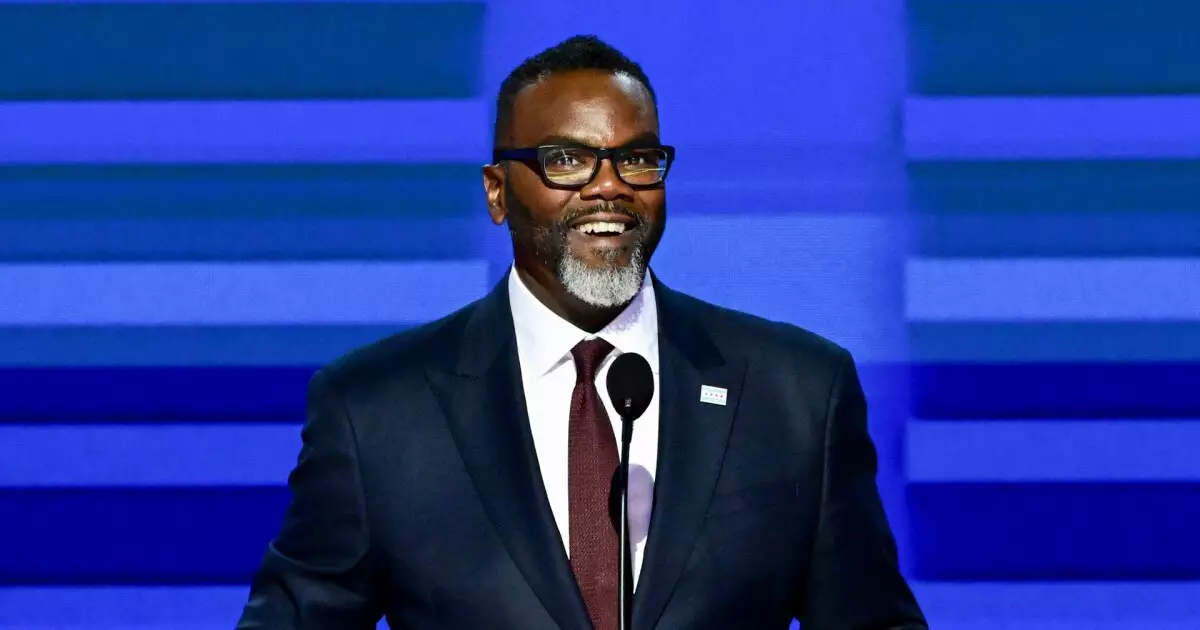The Chicago City Council’s recent decision to approve a plan for refinancing $1.5 billion in city debt marks a significant step in the municipal government’s financial strategy. Following a postponed action on October 9, the council’s 35-12 vote reflects a continued effort to manage the city’s fiscal liabilities. As Chicago aims to reduce its average interest rate on the refinanced debt from 5.62% to 3.75%, the administration anticipates $110 million in present value savings, a number touted by Mayor Brandon Johnson as a testament to sound financial management.
The city intends to issue General Obligation (GO) bonds with approximately $850 million being callable on January 1. Furthermore, plans are in place for a tender offer that will affect about $500 million of the bonds. Such measures appear designed to create more favorable borrowing conditions for Chicago, yet municipal finance experts express concerns regarding the city’s diminishing financial flexibility. Municipal Market Analytics commented that this refinancing could signify the end of a decade-long trend in improving credit quality.
Challenges remain, as highlighted by expert opinions like that of MMA’s Managing Director, Lisa Washburn, who warns that without a transparent structure to the refinancing, the city’s upward credit trajectory may indeed be behind it. The hesitance showcased by some council members hints at deeper anxieties regarding the long-term implications of such financial maneuvers and their authentic impact on the city’s fiscal health.
The council meeting illustrated the division of opinions among Chicago’s aldermen. Ward 34 Alderman William Conway asserted the financial prudence of the refinancing deal and called attention to amendments ensuring that the funds would strictly be utilized for cost-saving debt refinancing. In contrast, Alderman Raymond Lopez raised valid points of contention regarding the potential use of the bond proceeds for operating expenses. His concerns reflect wider apprehensions about the implications of debt financing on future budgets, suggesting an ongoing cycle of fiscal challenges for upcoming administrations.
Lopez’s cautionary stance underscores the need for accountability and transparency, especially in light of claims from various financial officers that the refinancing will alleviate debt service costs and curb the city’s budget deficit. These promises, however, confront skepticism rooted in the perceived lack of thorough financial examination leading up to the vote.
Financial prudence must be coupled with transparency to ensure public trust. Illinois Comptroller Susana Mendoza, alongside other critics, has raised alarms about potential loopholes in the financial agreement. Such warnings echo deeper systemic issues often observed in governance: the necessity to demonstrate accountability while managing taxpayer dollars. Mendoza argued that without a clear illustration of how $90 million in savings would be achieved—and how funds would be spent—the public’s faith in the process could erode.
Municipal Finance Chair Pat Dowell also addressed this transparency concern, asserting that the deal does not extend the maturity of current bonds, instead providing significant immediate savings. Nevertheless, perceptions surrounding the structural integrity of the refinancing persist, illustrating a potential disconnect between governmental assurances and public scrutiny.
As Chicago pursues strategies to address mounting fiscal pressures, long-term sustainability should be at the forefront of financial directives. The city’s financial team is urged to avoid “scoop-and-toss” strategies—a temporary fix that merely defers financial obligations without truly solving underlying issues. Recurring solutions are paramount, as the reliance on one-time financial maneuvers could signify a dangerous precedent, leaving future administrations to contend with unaddressed debt challenges.
Despite recent credit rating improvements from Fitch Ratings and others, the focus should remain on developing a robust fiscal framework that promotes genuine economic resilience. If current strategies prioritize immediate gains over strategic planning, Chicago may find itself in an uneasy fiscal position, restrained by debt and insufficient revenue streams.
Chicago’s refinancing plan is emblematic of a delicate balancing act between immediate relief and long-term financial health. While the city council’s approval of refinancing potentially opens the door to significant savings, stakeholder confidence hinges on transparency and accountability in implementation. As Chicago navigates an intricate web of fiscal responsibility, its leaders must prioritize sustainable solutions over reactive measures. The challenge will be for the city to advance not just in credit ratings but in achieving a genuinely stable and prosperous financial future for all its residents.


Leave a Reply